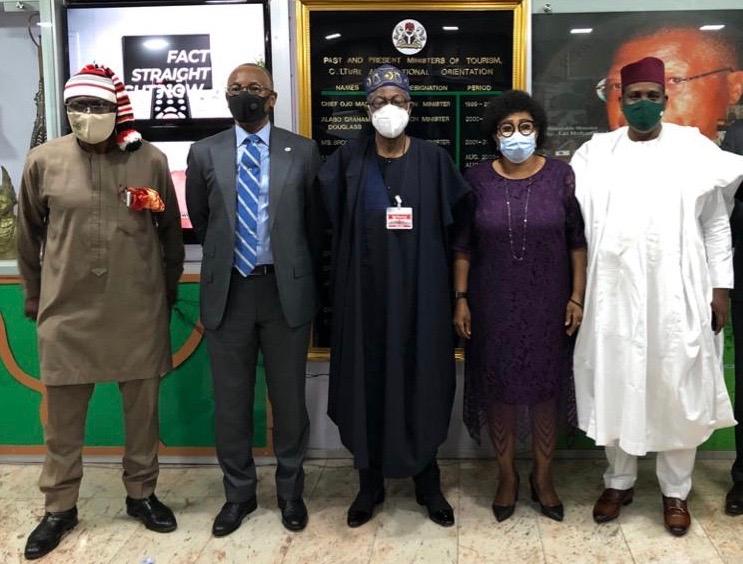Nigeria’s Minister of Information and Culture, Mr. Lai Mohammed, has said that the Nigerian film industry has the potential to make the country the entertainment capital of Africa.
Speaking at the Inauguration of the Steering Committee on the Commercialization of the Nigeria Film Corporation (NFC) in Abuja on Monday, Mohammed said that the Nigerian government was now set to reposition the Corporation for effective service delivery.
“What we are doing today is to simply reposition the NFC in a manner that will enable it to play the role statutorily assigned to it,” he said.
The Minister noted that the film industry drives entertainment and has brought fame to the country, hence the need to reposition the sector and provide the necessary enablement for the industry to thrive.
He decried the lack of critical infrastructure to drive the film industry in Nigeria, saying, for example, that Nigeria has only 142 cinema houses compared to South Africa with 782 cinemas, United States of America, 40,393, India, 11,209 and China with 50,976 cinemas.
Mohammed, therefore appealed to state governments to invest in the provision of infrastructure for the entertainment industry, in view of its huge potential to generate employment and contribute to the economy.
“It is important to appeal, especially to our state governments, to invest in infrastructure in the industry. I don’t think it will be too much for the state governments to ensure they build at least one cinema house in each local government area of their state. That will
give us additional 774 cinema houses,” he said.
Mohammed said at the moment, the NFC, which is expected to regulate and organise professional practice in the film industry, is facing numerous challenges, which include NFC’s inability to engage in commercial film production; the fact that the law establishing the Corporation limits its operational functions such that it cannot
leverage on the private sector-led growth of the industry, and also that NFC’s civil service structure comes with bureaucratic limitations, budgetary constraints and operational inefficiency among others.
According to him, in order to address these challenges and reposition the NFC for improved performance, the Nigerian government has engaged the services of a Business Development Consultant to conduct due diligence on the corporation and the sector and recommend a strategy that is suitable for its reform and commercialization.
In his remarks at the occasion, the Director General of the Bureau for Public Enterprise, Mr. Alex Okoh, noted that the reform of the NFC is not privatization, but commercialization, with no transfer of ownership and sale of share, so as to ensure that the resident values of the corporation are enhanced.
The statement by the ministry said that the Minister would serve as the Chairman of the Steering Committee, while Permanent Secretary, Federal Ministry of Information and Culture, Deaconess Grace Isu-Gekpe; Director General, BPE, Alex Okoh; Managing Director, NFC, Chidia Maduekwe are members and Director, Industries and Communications, BPE, Abdullahi Dikko, would serve as Secretary of the committee.
GIK/APA


